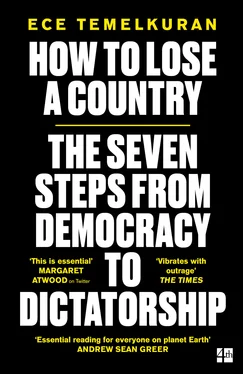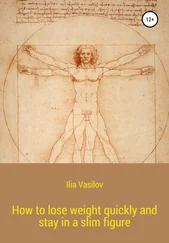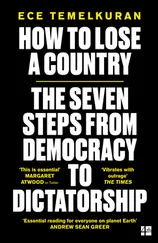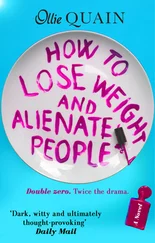A communications explosion is occurring on our TV screens, and many of us know that this is very much not normal. Turkey’s recent history has taught us that a coup starts with the army taking politicians into custody and shutting down news sources. Also, coups tend to happen in the early hours of the morning, not during television prime time. In this meticulously televised coup, government representatives appear across TV channels all night long, calling on the people to take to the streets and oppose the army’s attempted takeover. The internet does not slow down in the way it usually does whenever something occurs to challenge the government; on the contrary, it’s faster than ever. Even so, the speed and intensity of the night’s events do not allow the sceptics to properly process these strange details.
Erdoğan communicates using FaceTime, with his messages broadcast on CNN Turk. He calls everyone out into the city centres. Like most people, I do not anticipate the government’s supporters taking to the streets to confront the military. Since the founding of the modern Turkish republic in 1923, under Kemal Atatürk, the army has traditionally been the most respected institution in the country, if not the most feared. But apparently much has changed since the last military coup in 1980, when it was the leftists who resisted and were imprisoned and tortured; the president’s call resonates with thousands.
In no time the TV screens are showing the young, terrified soldiers being beaten and strangled to death by this mob. And that is when the never-ending sela from all the minarets in the country begins. Sela is a special prayer recited after death. It has such a shivering tone that even those who are not familiar with Muslim customs can tell that it is about the irreversible, the end. Tonight, sela is followed by loud announcements from minarets calling people to the streets in the name of God, to save the president, the democracy, the nation … The tune of death now shares the sky with jets, the delirious ‘ Allahu akbar ’s of Erdoğan supporters and the soldiers’ cries for help. And I remember the poem that started everything: ‘The minarets are our bayonets/The domes our helmets/The mosques our barracks/And the faithful our soldiers.’ It was Erdoğan who recited the poem at a public event in 1999, leading to him being imprisoned for four months for ‘inciting religious hatred’, and transforming him first into a martyr for democracy, then a ruthless leader. And after seventeen years, on the night of the coup the poem sounds like a self-fulfilling prophecy, a promise that has been kept at the cost of a country.
We have learned over time that coups in Turkey end the same way regardless of who initiated them. It’s like the rueful quote from the former England footballer turned TV pundit Gary Lineker, that football is a simple game played for 120 minutes, and at the end the Germans win on penalties. In Turkey, coups are played out over forty-eight-hour curfews, and the leftists are locked up at the end. Then afterwards, of course, another generation of progressives is rooted out, leaving the country’s soul even more barren than it was before.
As I watch the pro-government news channels throughout the night it becomes clearer by the minute that it is business as usual. Pictures and videos come through of arrested soldiers lying naked in the streets under the boots of civilians – as leftists lay under army boots after the coup in 1980 – and the news channels and the government trolls on social media, not at all paralysed like the rest of us, present us with the perspective they deem most appropriate: ‘Thanks to Erdoğan’s call, the people saved our democracy.’
‘ Allahu akbar ’s multiply on my street, accompanied by machine-gun shots from the circulating cars. After so many years spent under AKP rule, devotion to the army has apparently been replaced by religious commitment to Erdoğan. We are watching his face and name become the emblems of the new Turkey we’ll wake up to. Beneath the madness and the noise a carefully crafted propaganda machine is fully operational, already preparing the new political realm that will come into being in the morning. And having long been a critic of Erdoğan’s regime, as dawn breaks it becomes Kristall -clear that there won’t be a place for people like me in this new democracy.
Watching a disaster occur has a sedating effect; like millions of people around the country, I am numb. As our sense of helplessness grows along with the calamity, the cacophony transforms into a single siren, a constant refrain: ‘There’s no longer anything you can do; this is the end.’ The global news channels jump in. For the rest of the world, the night’s events are like the opening scene of a political thriller, but in fact this is the climax, the dénouement. It has been a very long and exhausting film, unbearably painful viewing for those of us who were forced to watch or take part. And I remember how it began: with a populist coming to town. Which is why, as the British and American TV anchors put hasty questions to the studio analysts, I feel like saying, ‘As our story ends, yours is only just beginning.’ A bleak dawn breaks.
I remember the exact day I experienced dawn for the first time. I woke up early one morning to the sound of the radio playing loudly in the living room, and found my mother and father chain smoking as they listened to a coup being declared. Their faces darkened as the day broke. It was 12 September 1980, and I looked up at the clear blue sky and said to myself, ‘Oh, this must be what they call dawn.’ I was eight, and one of the most vicious military coups in modern history was just getting started. My mother was silently crying, as she was to do frequently for several years after that dawn.
From that day forth, like millions of other children with parents who wanted a fair, equal and free Turkey, I grew up on the defeated side; among those who always had to be careful and who were, as my mother told me whenever I did less than perfectly at school, ‘obliged to be smarter than those in power because we are up against them’. On the night of 15 July 2016 ‘we’, as ever, were smarter than ‘them’, as we combined penetrating analysis with brilliant sarcasm. But in every square of every city in the country, raging crowds were playing the endgame, perhaps not as smartly, yet with devastating effect.
On 15 July 2016, my nephew Max Ali was the same age I was on 12 September 1980. He is one and a half years older than his brother, Can Luka. They are half-Turkish, half-American, and they live in the US. They were supposed to have gone home to America on 16 July, after a vacation spent with their babaanne – ‘grandmother’ in Turkish – my mother. Max Ali is a religious devotee of babaanne breakfasts. He is one of the lucky few on the planet who know of epic Turkish breakfasts, and he believes only babaanne knows how to make them. As a family, we’re always proud that he chooses tomatoes and Turkish cheese over Cheerios, which my father calls ‘animal food’. Had they not experienced the dawn during the coup their memories of babaanne would have been limited to indulgent breakfasts. But instead of heading to the airport that morning, as day broke they watched their babaanne crying and chain smoking in front of the TV. My mother told me Max Ali asked the same question I’d asked thirty-six years before: ‘Did something bad happen to Turkey?’ Babaanne was too tired to tell him that every generation in this country has its own dark memory of a dawn. She gave the same answer she had given me thirty-six years previously: ‘It is complicated, my dear.’
How and why Turkish democracy was finally done away with by a ruthless populist and his growing band of supporters on the night of 15 July 2016 is a long and complicated story. The aim of this book is not to tell how we lost our democracy, but to attempt to draw lessons from the process, for the benefit of the rest of the world. Of course, every country has its own set of specific conditions, and some of them choose to believe that their mature democracy and strong state institutions will protect them from such ‘complications’. However, the striking similarities between what Turkey went through and what the Western world began to experience a short while later are too many to dismiss. There is something resembling a pattern to the political insanity that we choose to name ‘rising populism’, and that we are all experiencing to some extent. And although many of them cannot yet articulate it, a growing number of people in the West sense that they too may end up experiencing similar dark dawns.
Читать дальше












